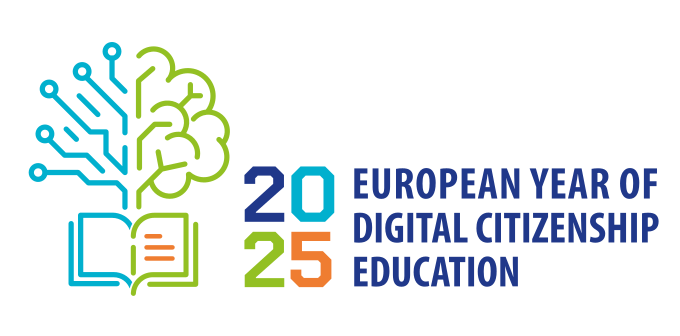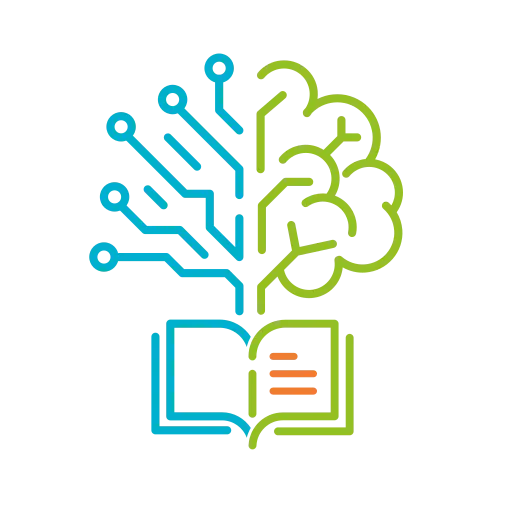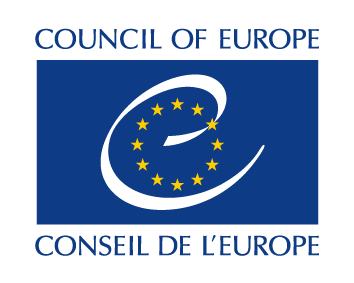- Digital Competence Development Programme (PRKC) (2020-2030): focuses on digital skills development for citizens, information and communication technology (ICT) sector specialists, employees of small and medium-sized enterprises (SMEs), as well as public administration and national bodies (adopted in 2023). PRKC is an implementation of the action indicated in the Human Capital Development Strategy as a complementary action in the area of Human Capital, with a specific goal (Improving the level of competences and qualifications of citizens, including digital ones).
- According to the national authorities responding to the online survey, the development of digital competences is one of the key actions conditioning the implementation of Poland’s development goals, indicated in the Strategy for Responsible Development until 2020 (with a perspective until 2030) towards a knowledge-based economy model. Currently, a new strategy to replace the Responsible Development Strategy is being developed, and issues related to the need to develop digital competences are also taken into account.
- According to the national authorities responding to the online survey, the Digital Transformation of Education Policy (PCTE) addresses the need for a unified document to coordinate goals and actions in digital education transformation. PCTE’s framework enables the planning, coordination, and evaluation of goals at central, regional, and local levels, assigning strategic directions to educational entities and serving as a foundation for stakeholder activities. Its aim is to establish a fully digital education system equipped to handle modern challenges, with interventions focused on the following areas: evaluating digital education and technology use by students; updating preschool and general education curricula; integrating new technologies and AI in schools; advancing teaching methods, digital didactics, and resources; training and upskilling teachers; providing digital equipment for students, teachers, and schools; fostering digital specialists; enhancing digital security; and transforming school organisational structures.
- According to the national authorities responding to the online survey, the Council of Ministers has adopted new strategic document regarding digital education – The Policy for Digital Transformation in Education (Polityka Transformacji Cyfrowej Edukacji, PTCE) in September 2024. It was developed as part of the implementation of the National Recovery and Resilience Plan. It does not contain references to the Council of Europe documents.
Country profile list

Poland
- Within the Digital Competence Development Programme (DCDP), activity I.2.3 was being carried out, i.e. with the aim of supporting the teaching of media education, digital hygiene and cyber security (Cyber Classes), improving teachers‘ qualifications in terms of knowledge of children’s online safety, providing access to materials that can be used during remote as well as on-site teaching, and increasing students’ knowledge of online safety understood as cyber security, but also as knowledge and skills on how to verify disinformation and build resilience to this phenomenon. Within the framework of the SIP, activity I.4.3 is being carried out with funds from the NIP (National Reconstruction Plan) to train a large number of teachers. The training aims to prepare teachers to use and implement digital technologies in their daily work at school and to implement them in the school environment. Topics related to secure data, collaboration and communication in the digital environment (use of media and information, countering misinformation, sensitive data, laws and security rules for educational resources and digital devices) are also part of the training. In order to keep students safe on the internet, it is necessary for them to acquire knowledge regarding informed and critical use of content, resistance to disinformation, cyberbullying and digital hygiene. Within the framework of the DCDP, Measure II.1.2 is carried out, the aim of which is to prepare and carry out educational and information campaigns for the development of the information society, including digital competences, increasing the use of digital technologies. The measure consists of a number of educational and information campaigns. Among others, the following have been conducted so far: an educational campaign ‘Digital Parent Academy’, which educated how to deal with the main online threats affecting children and young people, an educational campaign on the 5 main cyber threats, together with Google an educational campaign ‘Enable two-step verification’ on the use of two-step verification on websites, an information campaign warning against fake SMS. In 2024, the project will continue with campaigns in 2 main thematic areas, including the area of cyber security, which is expected to translate into increased awareness of the main types of cyber threats and increased skills to deal with them. In this area, an important strand will be an educational campaign related to the protection of children and young people from cyber threats.
- The Modern Poland Foundation in cooperation with media and information literacy experts prepared a Media and Information Literacy Competences Catalogue. (2014).
- Polish Centre for the Safer Internet Program: The Centre undertakes a range of comprehensive measures for the safety of children and young people using the internet and new technologies.
- NAVOICA: nationwide educational platform offering free MOOC online courses (Massive Open Online Courses) conducted by universities and educational institutions. There is a wide array of stakeholders involved in the implementation. Each action of the PRKC is designed to a set of stakeholders. For instance: I.1.1. /I.4.2. Developing digital competences in preschool education, the cooperating entities are: Office supporting the minister responsible for education and upbringing, CPPC, NASK, ORE, NGO, local government unit, office supporting the minister responsible for regional development, UKE (See P.112 of the evaluation)
Sources
- https://www.gov.pl/web/cyfryzacja/kompetencje-cyfrowe
- https://fundacja.wolnelektury.pl/about-us/
- https://www.saferinternet.pl/menu/about-us/safer-internet-in-poland.html?setlng=en#:~:text=Polish%20Safer%20Internet%20Center&text=The%20Center%20is%20formed%20by,the%20internet%20and%20new%20technologies.
- https://navoica.pl/
- Digital Competence Development Programme (PRKC) (2020-2030). The progress of the implementation of the PRKC is monitored once a year and the monitoring results in a report submitted to the Council of Ministers. The progress of the implementation of individual actions and the achievement of the indicators set for the PRKC for these actions is monitored. In addition to this, the 4 main indicators established for the PRKC showing progress in the development of digital competences in the country are monitored, viz: – the percentage of people aged 16-74 with basic or secondary digital skills, – the percentage of people aged 16-74 with secondary digital skills, – share of ICT specialists among employed persons, – share of women among ICT professionals. A mid-term evaluation of the programme (in 2026) is envisaged during the implementation of the PRKC, which may be the basis for implementing significant changes to the PRKC. An ex-post evaluation is also foreseen i.e. after the end of the programme in 2030.
Sources
- Digital Competence Development Programme (PRKC) (2020-2030). In the legislative process, the Programme was consulted as part of public consultations, subjected to opinions and inter-ministerial agreements twice. PRKC received a positive opinion from the Joint Government and Local Government Commission, as well as the Council for Digitisation at the Minister Digital Affair. In addition, within the PRKC there are activities carried out by various entities/institutions such as: Chancellery of the Prime Minister, Ministry of Digital Affairs, Ministry of Education, Ministry of Science and Higher Education, Ministry of Culture and National Heritage, Ministry of Health, Ministry of Justice, Central Board of the Prison Service, Future Industry Platform Foundation, Polish Agency for Enterprise Development, Academic Computer Center Cyfronet.
- The draft Policy for Digital Transformation in Education (PCTE) was presented for consultation not only to other government bodies and organisations representing civil society, but also all interested citizens were given the opportunity to submit their comments and remarks. All local governments and schools were involved in the consultation process on the procedures for equipping schools with new digital equipment. In this way, the point of view of all stakeholders in the process was taken into account. The 2024 Ministerial Decree on minimum standards for equipping schools with digital equipment has been also sent for public consultation.
Sources
- The horizontal nature of the PRKC means that various entities are involved in its implementation, acting independently but cooperating with each other, which are jointly responsible for the results achieved. The Digital Competence Development Center reviews progress towards the PRKC goal and implementation, as well as any issues impacting program outcomes and follow-up activities. The PRKC has five priorities and each priority has activities and targets. The PRKC details stakeholders involvement in the implementation. For instance, for Action I.2.6. Workshops for Active Use of Technology – PAKT, the following stakeholders are involved: Lodz University of Technology, ROBISZ TO Association, “Cities on the Internet” Association, office supporting the minister responsible for regional development. For more information consult PRKC. The course of the PRKC implementation is monitored once a year. As part of the monitoring, individual units responsible for particular actions report on their implementation to the Minister of Digital Affair, who is responsible for the overall implementation of the Programme. On the basis of reports from individual units on particular activities, an Information on the implementation of the PRKC is prepared and submitted to the Council of Ministers, in which the progress in the implementation of particular activities is discussed and possible problems and difficulties, delays related to the implementation of the activities are indicated.
- All local governments and schools were involved in the consultation process on the procedures for equipping schools with new digital equipment. In this way, the point of view of all stakeholders in the process was taken into account. The 2024 Ministerial Decree on minimum standards for equipping schools with digital equipment has been also sent for public consultation.
Sources
- https://www.gov.pl/web/cyfryzacja/kompetencje-cyfrowe
- Online survey with national authorities
- According to the national authorities responding to the online survey, an ex-ante evaluation of the Digital Competence Development Programme (DCDP) has not been conducted. A mid-term evaluation is planned during the implementation of the programme in 2026, as a result of which the assumptions of the PRKC may change and certain activities of the PRKC may be supplemented, as well as revised and amended. An ex-post evaluation is also envisaged, i.e. after the end of the programme in 2030.
- According to the national authorities in the online survey, the PTCE doesn’t specify the exact procedures for collecting data and comments necessary for elaboration of its evaluation reports. However, these reports will certainly include opinions collected among experts and stakeholders
Sources
- Online survey with national authorities
- Online survey with national authorities
- Digital Competence Development Centre (CRKC), as a centre for managing the implementation of the Digital Competences and for research and analysis of the development of digital competences in Poland, supports the digital transformation. The programme assumes the creation of advisory and initiative teams – one of them is the Digitisation Council, whose members support the Ministry of Digital Affairs and the Council of Ministers Committee on Digital Affair (KRMdsC) with their knowledge and experience. It provides opinions on strategic and other documents related to digitisation, connectivity and the development of the information society. It cooperates in areas such as digital inclusion, protection of online privacy, elimination of barriers to the development of the e-economy, or reform of intellectual property rights online. The Council is composed of representatives of public administration, NGOs, the digital economy sector and the scientific and expert communities. In addition, additional initiatives for the development of digital competences are planned to be launched this year i.e: · Task Team at the KRMdsC for the development of digital competencies in the regions, within the framework of which cooperation of the Ministry of Digital Affair in this area with – local government units (marshal offices) will be undertaken. · Cooperation agreement for the development of digital competences (PW eSkills) between the Ministry of Digital Affair and a wide range of stakeholders – private entities (companies), NGO’s and science institutions interested in the development of digital competences.
- National Educational Network. Cooperating entities: Government and local government administration, NGOs, entrepreneurs, sector competence councils, scientific community and other stakeholders in the development of digital competences, office supporting the minister responsible for regional development.
- Safer Internet centre Poland, extensive list of public, private and civil society stakeholders. Members of consultive committee: Ministry of National Education Ministry of Digital Affairs, Ministry of Interior and Administration, National Police Headquarters, Orange Foundation Centre for Education Development, Centre for Citizenship Education, Google Poland, Meta Poland, Maria Grzegorzewska University, Tik Tok Poland.
- NASK Research and Academic Computer Network.
- NGOS: Centre for Citizenship Education, Polish Coalition for Open Education, Modern Poland Foundation, Centre for Civic Education, Empower Children Foundation (responsible of implementing EC programme, safer internet).
- The Polish Safer Internet Centre has invited leading IT businesses such as Orange, Samsung, Google, and Meta to partner during this year’s SID (safe internet say) actions.
- Centrum Cyfrowe (CC – Digital Centre)
Sources
According to the national nuthorities responding to the online survey, Government policies and actions aim to increase digital competences among all citizens, including those who are excluded, and to increase opportunities for women to participate/enter the ICT industry. The proposed Memorandum of Cooperation for the development of digital competences (PW Skills) and the Task Force at the Council of Ministers Committee on Digital Affair for the development of digital competences in the regions refer to the PRKC and its objectives and the Digital Decade, for which the issues of providing digital education for all, including the excluded, and promoting women’s participation in the ICT sector are important.
Sources
Online survey with national authorities
- Not a member of DCE Promoters network
- Active governmental member in Internet Governance Forum (IGF)
- Member of EU Media literacy expert group
- Member of Working Group on Digital Education: Learning, Teaching and Assessment (DELTA)
- Member of Global Education Network (GENE)
- Member of Commission Expert group on Safer Internet for Children.
- Member of CEDMO – Central European Digital Media Observatory
- Member of Commission Working group on Schools
According to the National Authorities in the online survey:
- Poland was involved in the work on the UNESCO AI Framework.
- The benchmarks set for 2030 by the European Council for EU Member States refer to the international computer literacy study of eighth graders ICILS 2028. Therefore, Poland will participate in this study.
- PTCE shares many of its goals with EU’s Digital Education Action Plan 2021-2027.
Sources
Training on DCE to teachers and other professionals:
According to the national authorities in the survey, the government is actively supporting digital education of teachers. Teachers from primary and secondary schools, as part of what is known as the Lesson Enter project, improved their digital and methodological competences used in their daily work at school and also learned how to create their own digital resources. An important aspect of the project was to prepare teachers to use various types of e-resources and applications that can be used in their classes. The total value of the project was almost PLN 49 million. By June 2023, 15 per cent of teachers from each voivodeship had taken part in training, totalling more than 75,000 teachers. Currently, under the ongoing undertaking C2.1.3 E-competencies from the National Reconstruction Plan (NRP), it is planned to train 45,000 pre-school education teachers and 19,600 school teachers in digital competencies useful in school and kindergarten education by mid-2026 (the maximum amount of support may reach approximately PLN 277 million). New standards for initial teacher education will soon be developed to ensure the development of their digital competencies. The training of future teachers will also include elements related to the use of AI tools at school.
Translation and dissemination of DCE Recommendation:
The recommendation has not been translated.
Contact us
Education Department
Council of Europe
Agora Building
1, Quai Jacoutot
67075 Strasbourg Cedex
France


